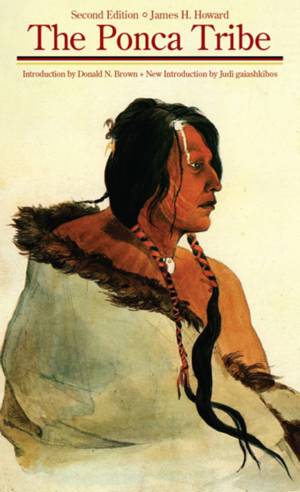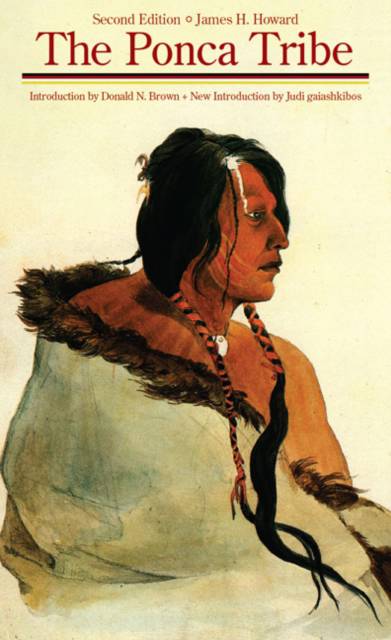
- Afhalen na 1 uur in een winkel met voorraad
- Gratis thuislevering in België vanaf € 30
- Ruim aanbod met 7 miljoen producten
- Afhalen na 1 uur in een winkel met voorraad
- Gratis thuislevering in België vanaf € 30
- Ruim aanbod met 7 miljoen producten
Zoeken
Omschrijving
The culture of the Ponca Indians is less well known than their misfortunes. A model of research and clarity, The Ponca Tribe is still the most complete account of these Indians who inhabited the upper central plains. Peaceably inclined and never numerous, they built earth-lodge villages, cultivated gardens, and hunted buffalo. James H. Howard considers their historic situation in present-day South Dakota and Nebraska, their trade with Europeans and relations with the U.S. government, and, finally, their loss of land along the Niobrara River and forced removal to Indian Territory.
The tragic events surrounding the 1877 removal, culminating in the arrest and trial of Chief Standing Bear, are only part of the Ponca story. Howard, a respected ethnologist, traces the tribe's origins and early history. Aided by Ponca informants, he presents their way of life in his descriptions of Ponca lodgings, arts and crafts, clothing and ornaments, food, tools and weapons, dogs and horses, kinship system, governance, sexual practices, and religious ceremonies and dances. He tells what is known about a proud (and ultimately divided) tribe that was led down a "trail of tears."
The Ponca Tribe was originally published in 1965 as a bulletin of the Smithsonian Institution's Bureau of American Ethnology.
The tragic events surrounding the 1877 removal, culminating in the arrest and trial of Chief Standing Bear, are only part of the Ponca story. Howard, a respected ethnologist, traces the tribe's origins and early history. Aided by Ponca informants, he presents their way of life in his descriptions of Ponca lodgings, arts and crafts, clothing and ornaments, food, tools and weapons, dogs and horses, kinship system, governance, sexual practices, and religious ceremonies and dances. He tells what is known about a proud (and ultimately divided) tribe that was led down a "trail of tears."
The Ponca Tribe was originally published in 1965 as a bulletin of the Smithsonian Institution's Bureau of American Ethnology.
Specificaties
Betrokkenen
- Auteur(s):
- Uitgeverij:
Inhoud
- Aantal bladzijden:
- 240
- Taal:
- Engels
Eigenschappen
- Productcode (EAN):
- 9780803228191
- Verschijningsdatum:
- 1/06/2010
- Uitvoering:
- Paperback
- Formaat:
- Trade paperback (VS)
- Afmetingen:
- 167 mm x 227 mm
- Gewicht:
- 335 g

Alleen bij Standaard Boekhandel
+ 55 punten op je klantenkaart van Standaard Boekhandel
Beoordelingen
We publiceren alleen reviews die voldoen aan de voorwaarden voor reviews. Bekijk onze voorwaarden voor reviews.







